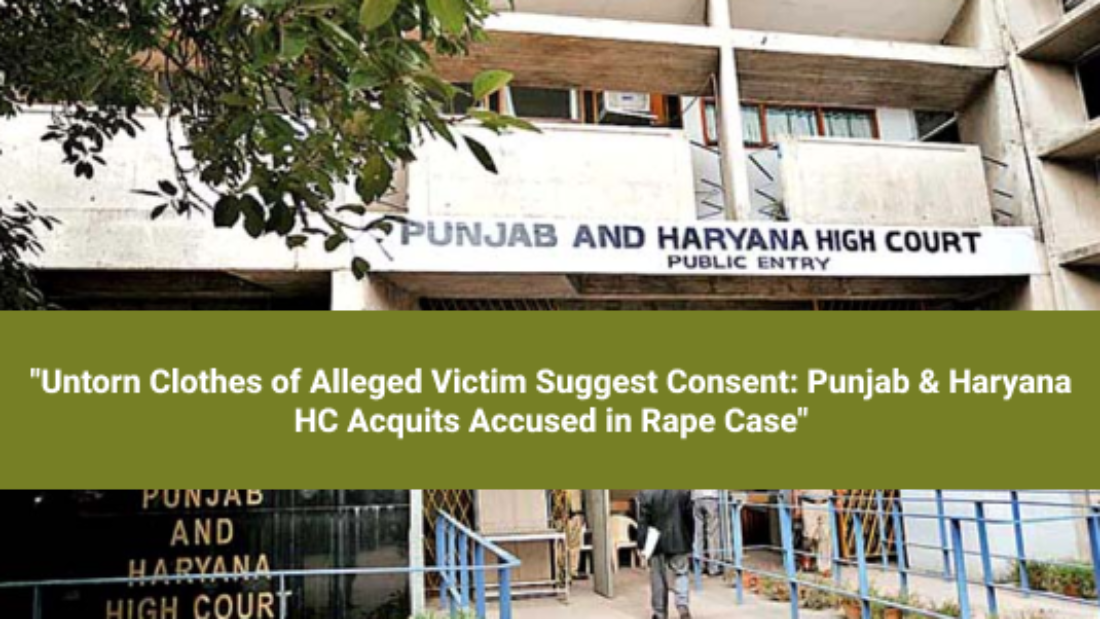Introduction
The Punjab and Haryana High Court acquitted two accused in a sexual assault case under the POCSO Act. The Court held that there was insufficient evidence to prove the charges against the accused under Section 29 of the POCSO Act, and hence the presumption of guilt cannot be drawn against them. In this case, the Court stressed the need for a thorough investigation into the allegations of sexual assault and refused to convict the accused for want of evidence.
Facts of the case
According to the FIR, a 13-year-old girl alleged that she was kidnapped in 2018 and when she was found, she deposed that another accused had raped her in 2017. The trial court awarded 20 years imprisonment to one of the accused under Section 4 (aggravated sexual assault) of the POCSO Act, and 20 years imprisonment to the other accused under Section 6 (aggravated sexual assault).
Petitioner’s case
The petitioners approached the High Court seeking quashing of their convictions as there was no substantial and substantial evidence to support the allegations. They argued that the allegations levelled against them were false and the court had not investigated the matter properly.
Respondent’s case
Each of the accused claimed that there were fallacies and inconsistencies in the facts presented by the police regarding the allegations levelled against them. They said there were inconsistencies in the girl’s statement and there was no concrete evidence at the scene of crime.
Court’s observations
The court said that the allegations could not be inferred due to lack of relevant evidence to prove the guilt under Section 29 of the POCSO Act. The court also said that there were new aspects in the statement given by the girl, which were contrary to the prosecution’s theory. In particular, the court found that the girl made some new statements in her testimony in court, which did not support the prosecution’s arguments.
The court also said that there were several significant flaws in the investigation, and the investigating officer did not question the neighbors about the girl’s abduction. The medical evidence was also incomplete, making it clear that the allegations of sexual assault could not be fully proven.
Perusing the medical record, the Court stated that, “From the medical evidence coupled with other circumstances available on record, it comes out that there is incomplete medical evidence and the allegation of committing of the sexual intercourse with the victim is not fully proven.”
Court’s Decision
The court found that the evidence presented by the prosecution was insufficient and the investigation was not conducted properly. The girl’s statement and other evidence were inconsistent with each other, which brought the case into doubt. Thus, the court acquitted both the accused and quashed their conviction. The court ordered that the accused be released immediately.
While setting aside the conviction, the Court found that, “the investigation has not been conducted properly and the Investigation Officer has failed to perform his duty of collecting the entire evidence.” The court further directed that the accused be released forthwith and allowed the appeals.
Conclusion
The Punjab and Haryana High Court ruled in this case that if a person is charged under the POCSO Act, the prosecution has to prove that the allegations are true. If the evidence supporting the allegations is weak or inconsistent, the court has the right to acquit the accused. In this case, the court acquitted both the accused, rejecting the facts and evidence of the prosecution.
Credits: Deeksha Rai
 Cart is empty
Cart is empty 

